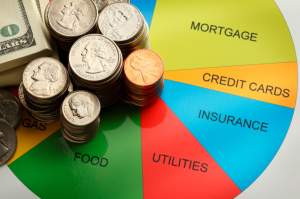It happens sometimes. Despite your best efforts to budget and save, you come up short when it comes time to pay bills. It’s unsettling, to be sure. But it doesn’t have to mean the start of a financial freefall. With a little planning and strategy, you can get through the lean time to come out on top. The first thing you’ll want to do is determine which bills to pay first. Here is a guide for how to prioritize bills when you’re low on cash:
Rent or Mortgage
When you’re struggling financially, the last thing you want to worry about is whether or not you’re going to have a roof over your head. Paying your rent or mortgage should always be your first priority. Late mortgage payments take a huge toll on your credit score, and missing mortgage payments can lead to foreclosure, just as missing too many rent payments can lead to eviction. If you have no other option, here’s what to do if you can’t make your mortgage payment.
Vehicle Loan
Falling behind on your vehicle loan could lead to a repossession. Not only will it leave you without a vehicle to get where you need to go, it can have long-term negative effects on your credit.
Utilities
You will generally have ample notice that your power, water or phone are going to be turned off, but you don’t want it to get to that point. If utilities are shut off, it can be very expensive to restore service and having that notation on your credit will mean paying serious deposits the next time you move and need to re-establish service.
Insurance Premiums
It’s always important to stay current on your insurance premiums, but even more so when you’re struggling financially. If you get sick or have a car accident, you don’t want to be stuck paying those bills out-of-pocket because you let insurance coverage lapse.
Credit Card Payments
By no means are we advocating paying late or skipping credit card payments. However, there may be a bit more wiggle room on these payments if you call your creditor to let them know you are having difficulty paying. The key is to do it right away, before the payment becomes 30 days or more late.
Things to remember: With the exception of rent and mortgage payments, most of the above payments aren’t “officially” late until they hit the 30-day mark. That’s not a reason to pay late, however. Those days will go by quickly. Plus, late fees and other charges may apply which can cause you to fall further behind. If you are struggling to pay your bills every month, free Credit Counseling can help you learn how to budget and plan to ensure you can cover expenses without having to prioritize bills.





